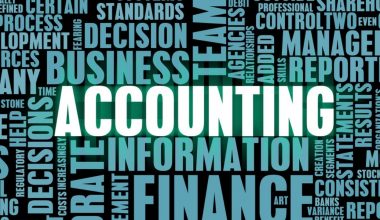Growing up and watching some of the rich kids in the neighborhood bully their fellow kids, I felt it was a crime to be rich. And so I preferred to stay poor. But over time, having seen the people I admire so much talk about money and how it plays a big role in community development, my mindset towards money changed. Now, this is just an example of a paradigm shift. But how does this paradigm shift affect your business? Find out in this article.
What Is a Paradigm Shift?
A paradigm shift is a significant change in one’s worldview, concepts, and behaviors regarding how something works or is performed. A paradigm shift can occur in a variety of circumstances, ranging from scientific study to industry.
Industry paradigm shifts frequently occur when new technology is introduced that significantly alters the production process or manufacturing of a good or service. These shifts are essential drivers in many societal processes, such as the American Industrial Revolution.
Understanding The Paradigm Shift
The concept of paradigms has been around for a long time. However, American physicist and philosopher Thomas Samuel Kuhn examined the subject of paradigm shifts in his 1962 book The Structure of Scientific Revolutions. A paradigm shift, according to Kuhn, is a revolution that challenges and eventually replaces an existing scientific framework. These difficulties arise when the dominant paradigm, within which typically accepted research operates, is discovered to be incompatible or insufficient with new data or results. Thus, allowing for the adoption of a revised or entirely new theory or paradigm.
Paradigms matter because they define how we view reality and act within it. Everyone is bound by the constraints and distortions imposed by their socially conditioned nature. Before Einstein, for example, physicists took Newtonian physics for granted. With the rise of quantum mechanics, that paradigm was challenged.
As the industrial revolution revolutionized many social, scientific, and industrial processes, such shifts have grown far more common in the last century. As our rate of technological growth accelerates, these processes are expected to become much more widespread.
What Are the Four Paradigms?
The four paradigms are:
- Behaviorism.
- Cognitive Psychology and Information Processing
- Personal Constructivism.
- Situated Learning and Social Constructivism
An Example of a Paradigm Shift
The internet caused a paradigm shift in the operation of financial services and stock markets. Securities orders can now be put directly by the client online and are sometimes completed in seconds.
Prior to the internet, a client would phone their broker, who would then type out an order ticket for the broker’s record before calling the firm’s floor broker to execute the deal. Stock quotes are now widely available via many sources thanks to contemporary technology, whereas ticker machines were required in offices 100 years ago. Order tickets, fax machines, and ticker machines are all obsolete. This is an example of the paradigm shift brought about by modern technology.
Paradigm Shift In Business
A paradigm shift in business refers to a significant change or advancement in how a firm or business generates its goods or services. They frequently assist firms in terms of product efficiency and quality while altering core operational notions.
A paradigm shift in the business world is frequently characterized by a shift in perception of how things should be thought about, done, or manufactured. A paradigm shift may necessitate the elimination or creation of entire departments. In other circumstances, new equipment worth millions or even billions of dollars must be purchased while old equipment is sold or recycled.
The ability to correctly respond to imminent paradigm shifts is critical to a business’s long-term success. The assembly line, for example, caused a significant paradigm shift in the auto industry and all other fields of manufacturing.
The internet was also revolutionary, ushering in a paradigm shift in how people obtain information, communicate, and shop. E-commerce giants such as Amazon and eBay have benefited from this new paradigm, while many traditional department stores have gone out of business.
Read Also: DIFFUSION OF INNOVATIONS THEORY: Principles and Practices
Points To Consider
Ideas that have the potential to cause paradigm shifts are not always positively embraced at first. Those discovered in the scientific realm are frequently the consequence of scientists operating on the periphery at first. Their contentious research is viewed as foolish or a dead end. While skepticism and inquiry are essential components of the scientific process, every now and then, a scientist has a breakthrough that leads to a paradigm shift. The weight of scientific and public opposition to the new paradigm can often be comical.
While not immediately accepted, if a fringe science is shown to be on solid ground, momentum against the prevailing paradigm gradually grows.
Those who are ensconced in an established paradigm are frequently hesitant, if not hostile, to contrary theories or data that threaten their worldview or habits.
When Do Business Paradigm Shifts Occur?
In business, paradigm shifts frequently occur when new technology or equipment is introduced to a firm or organization, radically altering how they operate. This technology frequently improves or replaces specific elements of production, allowing the business to boost product quantity and maybe revenue at the same time.
Types Of Paradigm Shift In Business
Here are a few examples of paradigm shifts and how they have affected various business disciplines.
#1. Personalization in Marketing
Companies can employ personalized marketing to suggest what you should watch based on previous viewings or to tell you when your favorite meal or product is on sale. Personalized marketing has enabled businesses to make particular recommendations to customers based on data from previous purchases or search results. This technology has enabled marketing departments and businesses to adjust their advertising strategies in order to increase corporate sales and revenue.
#2. Real-Time Data Analysis
Prior to technological advancements such as the internet, businesses would sometimes have to wait weeks to acquire statistics and information on how their sales, marketing, and other departments were functioning. Companies can generate real-time data using today’s technology, which they can analyze and apply to certain of their departments. This enables them to improve or develop the general functioning of their organization by fixing or adjusting certain of their strategies.
#3. Telecommunication
The capacity to connect via phone, email, and videoconferencing has given businesses an alternative method of carrying out their daily obligations and responsibilities. Companies that can contact colleagues and coworkers who are in different physical locations or time zones can manufacture goods and services more swiftly and efficiently. It also enables them to conduct their work on a worldwide scale and hire remote staff, potentially increasing the number of qualified candidates for firm employment.
#4. E-commerce
E-commerce has given businesses new avenues to offer their goods and services through the internet. Whether a company builds an online store to increase sales or a social media platform to further market its services, the e-commerce paradigm shift allows businesses to evolve and flourish by utilizing new technology, equipment, and methods.
Why Are Paradigms So Influential?
Most legends become more effective as their maps get more accurate. This is because they are more inclined to examine their own views and maps.
What Should Be Done About Paradigm Shifts?
How a company responds to paradigm shifts in its overall operations determines its long-term success. Here are some tips and strategies to help a company or business transition into a new paradigm and thrive:
#1. Determine Any Difficulties
During any paradigm shift, companies or enterprises may face problems that jeopardize the success of the transition. By identifying issues early on, the organization may discover solutions or change its paradigm shift plan to help the business flourish. Companies that identify difficulties early on can perform well with:
- Assisting employees in understanding their roles and responsibilities
- Project and goal planning for the new paradigm
- Using modern technology to assist team members in developing new habits
- Educating shareholders and investors about the new transition
- Create critical strategies
When incorporating new technology and equipment into a business, essential techniques can help ease the transition for present employees and set goals for the company’s future. It is critical that you develop strategies in great detail. This can help you communicate more effectively with investors about how the company will flourish, as well as help staff follow your strategy step by step to attain your objectives.
One method for developing solid plans is to begin with, the desired goal and work backward to determine how to attain it. For example, if the company’s goal is to have all departments use its new technology within a year, the first step might be to have all staff trained on the equipment after ten months. Work backward until you reach the first doable stage.
#2. Prioritize Customers
A paradigm shift sometimes ascribes to assisting a company’s customer base. Introducing new technology into a business allows it to serve its clients more swiftly while perhaps increasing its customer outreach.
Businesses might benefit from prioritizing their customers’ demands when migrating to a new paradigm since it helps them focus on how to accomplish the shift. Companies can leverage the expertise of their customers to develop their new paradigm goals and strategies. This allows the business to grow more readily while preserving its current audience.
#3. Gather Useful Information
When implementing a paradigm shift, organizations might benefit from collecting data and conducting research on the company’s performance as the transformation occurs. The data can tell a corporation how the market is reacting to its modifications and whether it needs to make improvements. This enables a corporation to adjust and correct any objectives or goals that it may have undertaken, so ensuring its success.
Example Of a Paradigm Shift In Business
Here is one example of a paradigm shift in business and how it was handled:
Joan’s Fabrics has frequently conducted business over the phone or in person with customers. However, they discovered through their research that by changing the way their firm does business, they might enhance their marketability and revenues. They decide to try out some new online methods, whereby:
- Customers can book appointments online.
- Customers are being emailed unique textile designs for approval.
- Allowing customers to make payments online
- establishing a store where clients can buy ready-made fabrics
Joan’s Fabrics recognizes that there are numerous changes to be implemented within the firm at the same time. Therefore, they perform market research to determine what their customers want to see adopted first. Through this study, they discovered that purchasing pre-made fabrics is the most popular choice, so they established company strategies to prioritize developing the online store and then slowly implementing the other items.
Why are paradigms so powerful?
Paradigms are crucial as they determine our perspectives and actions in the world. Every single person has the same inherent biases and restrictions due to their social conditioning.
What are your paradigms of yourself?
Paradigms are the ways in which we interpret the world and ourselves, including our own beliefs and the values we uphold. They give our experiences and interactions with others context, whether true or false and shape our perspectives on the world.
How do you break a paradigm?
If you are looking for ways with which you can easily break a paradigm, then look at these few helpful points.
- Bringing it together
- Intentionally change your mentality
- Educate yourself
- Do your best
- Be yourself
- Recapture your intentions
What is a paradigm vs. theory?
Paradigms are overarching philosophical assumptions, while theory refers to a more narrowly focused set of concepts and relationships used by social scientists to explain phenomena in the real world. While paradigms tend to be more general, theories tend to be more specific.
Are paradigms only positive?
It is possible for positive paradigms to have an ameliorating effect on our interpersonal interactions. To put it another way, if we have a negative self-paradigm, that can have a profoundly detrimental effect on our lives. If your paradigms are pessimistic, that’s why you’re experiencing and projecting negativity in your relationships with others and in your daily life.
What is the difference between paradigm and paradigm shift?
Generally speaking, a paradigm is a framework with implicit rules and norms that guide behavior. In a paradigm shift, one set of beliefs or assumptions gives way to another.
Why are paradigm shifts difficult?
Due to the widespread acceptance of the dominant paradigm’s tenets, the process of shifting paradigms is often fraught with controversy, turmoil, and a protracted investment of time and energy.
In Conclusion,
A paradigm shift is very important in every business venture. Companies that are open to adopting new measures to promote their business always experience a major turnout in their ventures.
Paradigm Shift FAQs
What does the Bible say about paradigm shift?
The Bible says, “Don’t follow the conduct and customs of this world, but let God convert you into a new person by changing the way you think.”
Is there paradigm in marketing?
In recent years, there have been increasing indications that the marketing paradigm is transforming, with forward-thinking firms utilizing data as a strategic revenue driver and using it to make insight-driven, company-wide decisions.
What is an economic paradigm?
An economic paradigm is a basic principle that describes how an economy works or should work.






